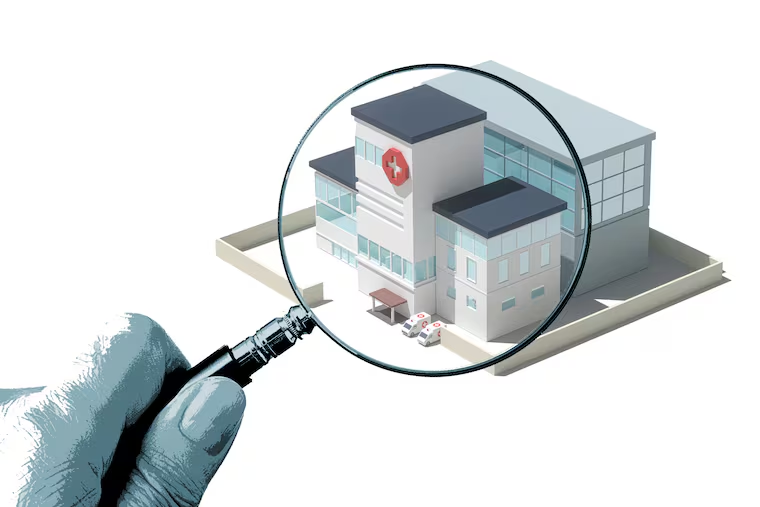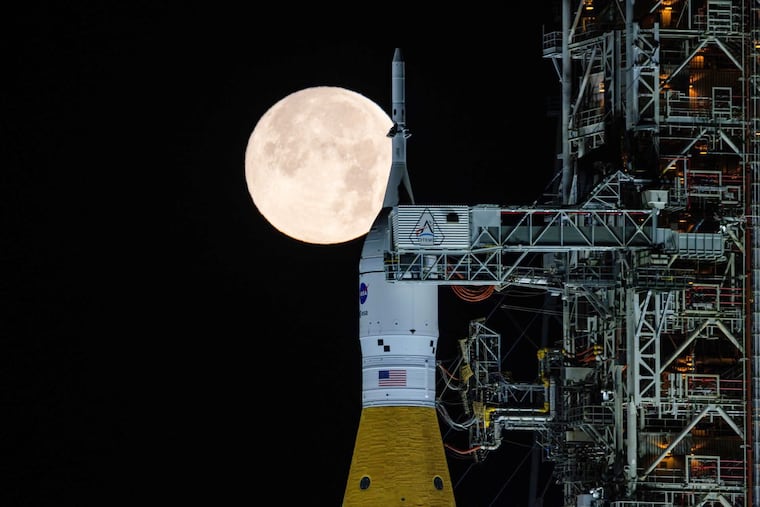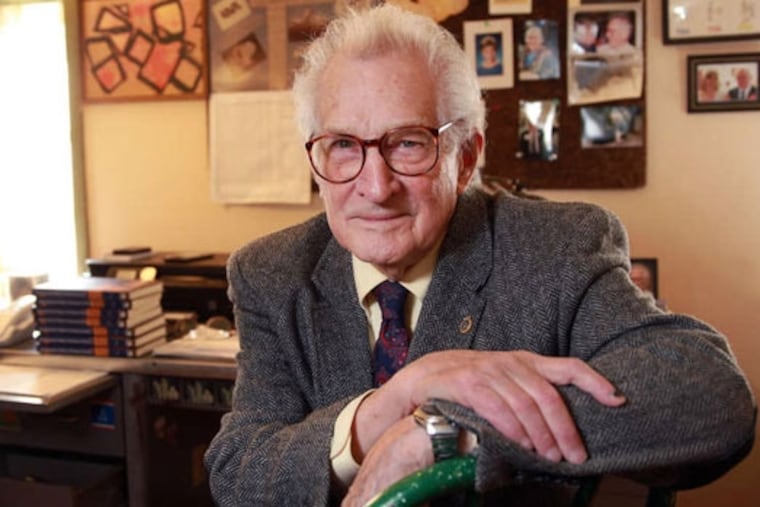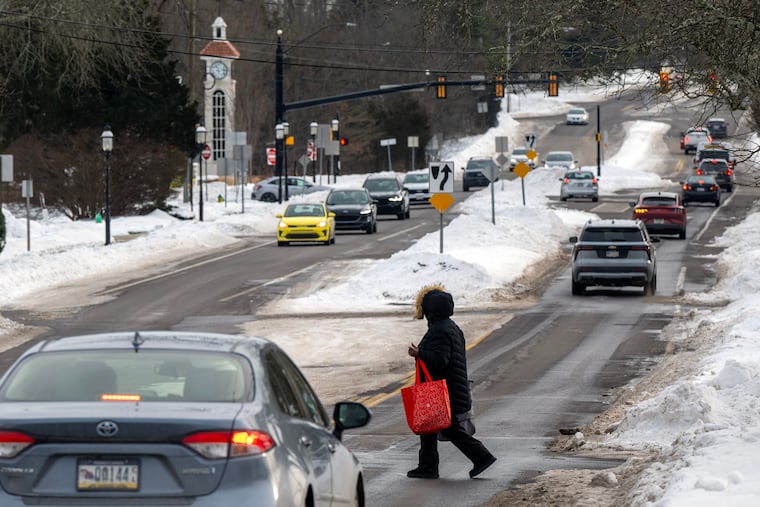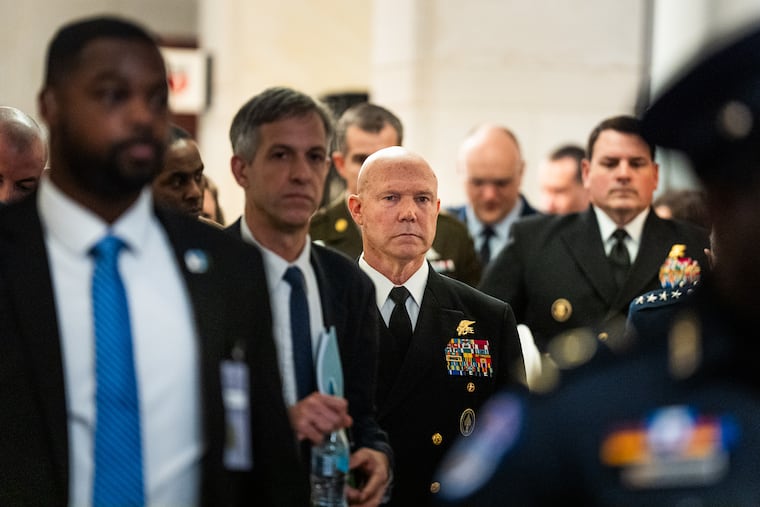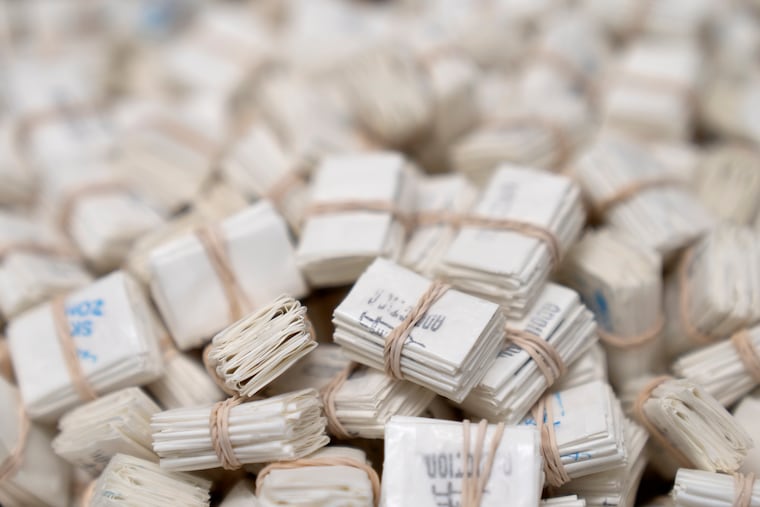Skip to contentJoanna Fong-Isariyawongse, The Conversation
Barry J. Jacobs and Julia L. Mayer, For The Inquirer
Joanna Fong-Isariyawongse, The Conversation
Joanna Fong-Isariyawongse, The Conversation
Barry J. Jacobs and Julia L. Mayer, For The Inquirer
John Lin and Jalpa Doshi, For The Inquirer
BriarRose Edwins and Hayley Goldner, For The Inquirer
Layla Bouzoubaa, The Conversation
Marcia Dunn, Associated Press
Adela Suliman and Kasha Patel, Washington Post
Marcia Dunn, Associated Press
Adela Suliman and Kasha Patel, Washington Post
Noah Robertson, Tara Copp, and Ellen Nakashima, Washington Post
David Ovalle and Cate Cadell, Washington Post
Geoff Mulvihill, Associated Press
Noah Robertson, Tara Copp, and Ellen Nakashima, Washington Post
David Ovalle and Cate Cadell, Washington Post
Geoff Mulvihill, Associated Press
{"ENV":"aAVCAmMMf0VTY3NaYz5gA3xzYEBjMmddfGBkCg==","CONTENT_BASE_PROD":"f3BjB1s+dwFTc10BdFVgA39gdEB0MnAHf3N8B3cicAd8Y1oHdjJ0TH9jVkBgHGQHf3B3WnQic1lrXXhAYDJjXX9zaEB0MnQBf3B7XnQxY198cGQGdCJ4B3xdeE5gVHNea2B3X3dUb1k=","ARC_ACCESS_TOKEN_PROD":"VX97A3cLZ0Vob3BPWgxaQnxdd150IWwFfF1oQHcyYEx+c3NedzFsTWtdc190InQEa2NwAnQyYE9rY3gGdAxsBGtwZEB0HFZMaGN0BncibEJrY3gGYzJST39jUgN0DHxNfmBrW3QxbAR/WmgEdDJeTGhgaAV3IXNYfF10AnQiZE1+YHgEdAxkQmhgZAd0IlFcf013XnQiUk1/XXxOdyF8TWtdcE9jMW9Zf3B4BmMLY1l+cGRAYzF/XGhjdE50Mn9Za3BoTXcLfEJoYGtfYzJ8CA==","GRAPHQL_KEY":"a2N7BV1VbE1oWkZAdwhWA3xdUgdgDHhCfF1WBXQxfAR8BXRPYDJRWX8FaAdgHHgBfGN/Wnccf1hrXWgFYDJzXGtjVgd0IlYBfGB8QGMMY11rXWBPdyFgBn9zdAZ3IWNef2B4BmA3CAg=","GATEWAY_URL":"Uk10Tl0MeAdQYHgHWBxaBGtdZAV3MXhNa11jW3cheEJ8c3QDdyJvWWhNc1p3IlYGfnNgQHcheAV8TXRNYzFgBXxzZAVjC2wHfAV4AmMLY1xoBXdbYzF4CA==","GATEWAY_SLS_URL":"U1pdWVgxXQRVBXxAdDFWA39zeEBjMnQAfHNwT3cyd1h8YGRPdjJkTGhdaE9gDHABfF18BnQycAd8YGBAYwtvXHxjUkBjIX9efE1nW3cxYE1rY1ladDFjXg==","FEEDS_URL":"VGBZXVwic0BSWgAEdgxgBGtjVkBgDHAHf3B8T3cMc198Y1ZAYzJ3WHxjWk92Intff3NaT2MiZ198YGNadiFvX2tgZE10HH9cf3BnW3QMd1h8TVladFRsAXxdUk53DHtYf1p7WmMxY1lrXWNbdBxzXQ==","RESIZER_KEY":"U2AERFgLQUB8f0ECdz54A39jWk53MnAFfHNWBXQcYAV/WnhOYDJ4B39jfE92IngEfGBoTWMyYARrYHRAdzF/XnxNeEBgDH9Za11gTnccc19rY2RNdiFvXGtafARgVGxPa11wBnQRCAg=","GOOGLEANALYTICS_ID":"UloJA2AMZ0x/b2NOYz5wA39zUgd2InRCfF14BmMMZAR8c1oHYDJkAX9wdE1jInwA","TWITTER_API_TOKEN":"aFoAWGMIWV9Qc3tAWwt4A3xNVk5jMngEfAVkT3QLYEJ8cGAGYAx4AHxzVk10VGBMfFpgTnYieABrXVpPYDJ4B2hddEBjMnxCfF1nW2MxYEx8cHRPdiJ4BmtdfAd2MmBNa11WQHchYAdrYGBNdzFjWGtga1t0IWNZfHN/XnRUZE1rXWRNdiJ3XXxjZ1t2MW9fa11ZW2MycE1/YHtcdwtsBmhNd113HHNZa3B3W3YhbAV8Y11bdDJZWWtjWVxjC3gEa11dXWMheEJrYH9bYFRsBnxjd192IWNYfGNwT2AxZ1hoTV1adAtsBWtje1p3VG9Yf2NZW3dUZABrWmdfdzFsTGgFe1p2MndcaE1zXWMhc15rc3tddzF4BmhNZE93VHhPaAV7XGMxeABrcHgCYzFnWGtgf1x0IWQGaE14Cg==","GOOGLE_CLIENT_EMAIL":"f293WGALQVtQXVVAdCJSA39geE93Inddf3B8B2AcdAB8Y3wHdAxwAX9zdAZ3ImNZfE10T3Qcc19rY1pPdDFgT39zdAdjMlFZf3N/XnQieAZ8XXRNdCJ8TXxaf1t0MmwFfE1dXmALfAVoXXNbdAtsTXxda1tgVGAAfHN7XnYxYE1oY2NfdwxsBWtaZ11gDHgAa113XWALb1l/WnxOdiJeQn5jfAo=","GOOGLE_PRIVATE_KEY":"VH9kBlwIc0R8Y10GXDEBA39NdAZ0DHQEf2N0QGMMZAR/Y2AEdAx8BH9wYE1jMnwFf2NSBWAMfAZ8Y3xAdjJ3Xn9dcE5gDGNYf2N0TXYyeAd/TXwHdzJgTHxNXV53HGNdfHB3WmMxY118Y3tbYyJnX39zaE5gMngGaGB4BnQicE1rXV1ddwxkB3xjd19gC2NcfHB0T3cyZ19/c2BOdwtgTHxNdE1gMnNcfmNkT3Qxb158Y1YHYFR8QmhNa11jC2QFaAVrXGMybAVrXWdedyFkAH5zZ15jC3tYa2BkTnQxf1x8c3gDdiFkAWtja1t3C3NYf2BnXXQhe1hrYHtbdAt4T35gf1x2IXtea1p7W3chbEJoXWdedDFzX2tdZE90Il4BaAVjX3cLeEJ+Y2ADd1RnXmtgd113MXAGfmNgA3cxY1h+Y3dedjFgBGtzf11jMl4Fa2BoA2MhZE9rc11fdwt7X35zWV13Mm9ZfF1oB2Acf1x/c1pAYzJsBXxjaE9jC2NZaF10B3cye198TXgGdjJ7X2tddAV0HHQBa11wBnQMZExoWmRPd1RvWHxNfEB3VGNef01aQHcyd19rY1oHdFR/XWtdVk9jDGAGa2NdWmAcZAB8XWtcdCJwAWhjfAR0HH9fa11ST2ALZE98XWAHdAtjXWtjZ1p0HF4EaGNnW3cMZE98Y2dbYDF4TWhdY1p3C3gFa3N8B3YiXVh8c39cYyFgQmtze1t3HFIEa3NrW3chb1x/XXwCdyFgBmtjc11gVH9da3BnWmMMc1hoTWNfdwtsBWtaa11jC3gHa3BrXnYhfAF+Y2NbYAtgT2tzWVt0HF1Za2NrXWMxfABrY2dfdCFkB2twa190InAEa118A2Mxc15+YGgDd1R4TGhNc1x3VHhMfnNjXXQhZAZrY3tadwt4TWtjf113MXNYa3BgTnYiZ1x8YGgFdCJ0AXxzdEB0ImNcf3NgT3cMZAd8WngEYyJwAH8FYAdgDHQEfHNWT3Qcf1x8c3AHdxx0BnxaYE53VHwHf3B8TWAMeAF8YGBAdyJ8B39zcE52MnNefE14QHQiY15rWndbdBx4QmtdYEB0MmdZfF1gT2Aye15/Wn9fdiJ3X2tga110MWBPa1p8B3YhZ19rWmddYDJnWX9Nf1x3IWRMaE1ZW2MLeAV+c3ddYAtkBXxzc190VHNca114QHQxYAdrc1leYwxsAGtza1p0VGAEaGN8A2MhZAV8c2NcdzFkT2gFfANgC2dea2BrWncxf1loY39adCF/X2hNY1tjC3wHaGBgAmAydEJrWntbYDFwBmhgY1x0MXhCaGNzXHchb1xoTWtbdiJdWGtae1pjMWdda11rXnciXgVrc2ACdiF8AWtwd1x3MWABa1p7XncxfAd8cHRNdAx7WH9deARjDHRNfAVoBGAMVgV8TWBPYDJ4BH9dfEB0IlZNfAV4T2AMfAR/XWtedBxgTXxzaE13InAAfGNkB3QxY1l8c3AGYzJvXWhdeE5jIndYa1pgT3cifE9/BWhAdBx8AHxgZ193IXxMa11nXHQyd19rcH9bdxxsAXxjc1t2MW9ZfmNrX2MhY11rXV1cYFRsT3xzfAd2MWNefHNaTnQhfE9oXXhAdDFvWWtdWVtgVGwGfmN7XmMLb1hrc11eYBxeTHxwfEB3MWNefHNVW3YxfE9rXX9bYwtvXWhaf1p0C2NYa2NdX3YhZAVrYGgCdBxwBGgFe110C3AFa2NzWnchZE1rXVoCdiF8Qn5gd150VGdea3NrXHchcARrWmdedyF/XmhNUgJ3VG9ffmB/X3chbE1rc2ACdAt7XGhNZ19gVGdda3B0AmAyXk9rWnteYyJ0B39geAd0InBPf014QHQMdAZ/XVladjJnXnwFY150HHQAfE1aT3Qcc1x8WmROdiF8AWtadE1jIWNcaF14Bnccf1xrXV1bYBxwBHxafAd3InNea11zWnYyY11/cHxAdAxjX2tgd1xjIndef3B/W2Axb158c2QGdwtwBWtgZ1tgMnNZa11/W3QcZ1h8WndaYDF7WWhge153VG9Ya3NjW3cyeAF8YHdediJ4Qmtjc11gHFJCaFpkTXQhZ1xoTX9bd1RjXn5jXV13IXtefF1nWmMiUgZrXXNadjJzXGtgZ150MlJCa3BrWncLeARrXXNfdFR4Qmtdc1t0IXwAa3NSA3cLcE1rYGdcYzJSB2tddAJ3VGdZa1prXXQiXkxrXXNdYFRvXGhafAJjC2dZa3NjX3QLeABrc1pAYwtsT2hga113DF1Ya2B7XGALcExrY39fdDF4AWhaeE1gHHRPfHBgQGMie11/BWBOdzJ4T3xwfEB0DHAHf1poB3cMfAF8c1oGYzJsBHxzUk90DH9YfE1gTXYyYAV8Y3NadwxwTX9zZAR3HH9efGN0T2ALY1hrXWdeYDFgTXxdXVp2MXABf1p0QHQxYAdrY2dbdBxzXX9gf1p0MW9fa11/X2AyZ1l8c1JAYDFsB2tje1x0IXwAa1pgQGMheEx+Y2QHYFRvXmtjZ113MnAFfE1VX3QhY1h8XVVcYFR8AH5za1x3VGdYa11rXXRUbARoWndbd1RsBGtzcAN0MXAFaAV0T2MLZAVrXXNbYzJeBmhje150C2QGaF1wA3chfARrXWtadjF/X2hNaAJ0MnBCaF1jXXQiUkJrY2dddCFzX2haa153IXNefnB7XmMLZ11rc2NbYzFsB2tzUgJ0VGQHfmNSAnQLZ1loXWgCdFRsBH5ga1x3IWdffGNaTXQyVk98YHROYBx3X3xzYE13HGBPf2BkT3cyZAZ/TVJNdzJ3XX8FYEB3HHgBfFp8BGAMVgR/c1ZOdDJwTWtgdEBgDGAAa2NWTmAxYAVoXWgEdCFvXHxgZE9jInwGf2BgAnQxYAdrY2taYAtwTWhjXVpgMWNca11VW3cidAV/cGRAd1RgB2taZAZ3HGRPa3NdWnYxeE9rYHxAdjJnWXxwe1t0MWBPaGNkA2ALe1hrc3xNYBx8B2twa150VGNZa2NkT3QyUgR/c3BAdiF7XWhgZ1x3VHtfaFpnXmMxYARrYHtadwxSQmhdXVp2MXgFa2NdXmAxb1loY3dcYyFwBX5ge193C2QHa3BjXWMheE1+Y1ICdjJeAGtzc113DFIFaF1rXHYxeARrc11eYDFkTWtdVgJ0C29caGBnWndUZE9+Y3tdYyFkQmhdf1pjMXhNaE1jXmAyZAd/TWAEYyJkT3xjVgZ3IntYfGB0B3YiYE98BXgGdBx/XH9waE92MnAHfFpoTXcyf11/WmgHYAx0THxNeAZ3DGQEfGNST2AMdE18TVZAdyF/X2tdZ1p3VGxNf3B8BXcLb158WnxAdCFvXXxae15jMWdca118QHQMXkx/YHxPdCJ8TWhNUk9gC2AGf01VXHcMd1xrcHQCYDJkTWtze1xjMnRMaAV7WmMMY198c11bYyFvXWhddAZjDHwGaE1jXHcheEJrcHgHYDF7XHwFY1xjDGdYf3NzWncxeEJrc2NcdjF4Qmhjf1t0VGwFa11rW3QLYAFoXVpOdwtnWGhdZ15gMllea3BrXmMxbABrYGACdCFgAGtzc1x3C3BPa2BnXGMLYAZrYGgDdjJSB2twY11gVH9Za3NwQHQLcE1+YGACdAxZXWtzUgJ3VGAAaE1nXWMhcAZ+cHhPYyJgT3xjUk10MlYGf3NkTmAMdE18XVpPdAx8QnxzVV5jIngAfHBgT3YydAB/Y11adwx4AX9NaE50VGxPf3N4TncMdAdrWndfdCJvX3xjfE90IndYfGNkTnYhcAR8c3gGdzFsTWhjcAd0MnQEa1prWmALbEJ8TXwFdCJ8BGtjVVtgMXAEaF1ZWnciZ1hrXWNbYwtnXn5za1t0MnAGa1p7X2AcXgV8c2tadwtgAWtaaE9gDFlZa3B/XXche1l/XXwDdCFsTWtdf1tgVHhMa11oAmMLZ1lrXWNaYAtzWX5zfEB3MXxMaGBjW3Yhe19+Y2NeYDFwTXxNZ152IWNdaE1/W3YhZE1oXXdeYwt8T2hgZ190IWxNfmB7XGMxfAVoTX9bdCF4BmgFfAN0Ml5PaF1/X3YyUkx+Y2dddwxeQmhNVV93VHwFa3NrX3chbE9oWntbdDFgT3xjZE1gHH9efAVoB3QMZ1h8XXxAYAxRXH9NZAd2InABf2B8QGAcf118c3QFdxx0QmtdYE93InAHf3BnW3QyfAVrY1JPdAxwTH9zYE50VGNdfGB4BnYyb198c3dbYDJ3XHxdZ1t2MXBCa1p0QHYyeE1oWnteYzJwTHxzZE90IW9ZfGNkB2AccAd8Y2RAdwxZXn9zYE90IWwAaAVnWncMdEx/XWNcd1RvXWhNZAN3MXAAfHN7XWMyc19oBXdbdyFwQmtjcE1gC2QBfmNzXmBUfAZrXWNfYFR8TGtgf190MXtefHNrX3Qhc1xoY2dbYyF4T2hgZ1xjIWNZfmNjW2MLfAVoTX9bdDJSBWhjYEB3MXBPa2NgAncxc1hrcGNfdjFwTGhdVVt0VHwAaAV3XHRUZ1xoYGdbdiJ3XmhNa1x3HF1da2NkAnQheE9rc2dbYDF8B2tdVV50MnAEfF10BGAcZ19/BWhOYBx8TXxNYAdjMmRCf11aB3YiZEx/c2tedzJ8QnxzVkBgMW9efGN8BHQLbE98YGNbdyF/Xn9dZEB0MnAGa2NgT3Yxb1loY1JPYzFjXmtaf15jInNefGBrWncidAR8c11cd1RwBnxgYAd2InAGaGB/XmAMdEx8c3Nbdwx0BWtgY190VGQBa2BjXXYxfAV+Y3Ncdwt7Xnxga1x3MnQGaFpkQHdUY11oTWQHdjJSQmtzd1t0MWBMaE17W3ccb1hoBXdadzFkQn5wf1p0VGQGa2NzXGMic1hrXWADdAtsT2tdXVp2IWBMa2NdW3RUfAdrcGdedyFkBn5gY19jIX9eaAV7X3QhY19rYHQCYAxdXn5gf112MX9caF1jX3Yhe15rc3NcYAt8AGhda1t2Il5PaE1ZXGALfEJ+Y1oDdwtjXGtjVV53C3AEfmB0QGAye1h/BWRNYwxwBnwFfAVgDGwHfF18T3Qie158c3BPYBxWAXxNWk10InNdf3NgBWMhb158BWhAdyJzXHxafAZgHHNea1p/W3QibAZ/XWBOYDFsBXxgd1tgDHAHf2B4B3QicAdrXXgFYDFwT2tjY1t0VHgHa2NZW3QhfAZ8YHhAdxx3WX9jZAZ0MWQHa2N/XGALb1hrY2NeYzFsBWtgeE5gDGddaGB3WmBUY118Y39bdFRkBn9dfEB0IWdda1prWnQiXgVrc2NcdFR4THxde11gC2wGa2BnW2ALbExoYGgDYzF/Xmtje1x0IX9daF1SAnchbE98c3dddzFvXWhgY1xjC3NeaGNjX2MyXgRrc2tedCFnWWhdYAN3VG9faGBnWncxZE1oTVVdYFRkT35jY113VHwFf3NrXHcxf1l+cHtcYyFwBH5jY1x2MXhMaGBrXnQhYAR/TVZAYAx4B39gYAV0InRCf2B8TmMyfAB8TVpAYBx0BHxNdE1jIlYFfGNWQGMyY118TWhOYzJnXH9zZ153MndffF1VW3QMfAFrXXRAdjJ0AWtjf1p2IXwFaFpoT2MycE9oBWRPdBxzXn9deEB2InBCfE1zX2MyUV9rYGhAdwtsAGtdWVx2ImdZa1p8TmALbEJoXWNfdyFsT2tjVkB3InQHf3B4B2ALYAdrY2tbdiFsTX5wa1x2InQFfGNgQHRUe19+cHtcdAt7XGhNa153DF5PaE1oTnRUbAdoWntbYBxZXnxjVVxgC3hMfmNSAnYhZ1hrWntbdzJ0BWtzYAN0IWAEa3NzXXYxb1h+YGRAYwtnWWhjXVxjC3BMa11jXnchf19rY2tbdiJSTGhNVV12MXAGaAV/XXQLfEJoBWNeYFRnXn5zVgNjIllcaAVnW3QMXk9+YGdcYyJ0AXxjcEBgHFFcfF1gTWMyeE18XVpNdDJ7WX9weEB3Im9YfE10BWAcbEx/WnwHYzJ/WX9zf1pgDHddfHBoTmAyd11/TWQGdjJwAH9weEB0InAEfHNSB3cMeAd8YGRAdzJ0BH9gZE9jDH9dfE1WTXccf15/XWgK","BLUECONIC_ENDPOINT":"fHNnQ3Qcb1xob3MEWiENA39zUgZgMnRMfGBgQGMycE18cGhAdzJzWHxzVVtjDGQFf01gBmALfE1/c2dbdBxwTGtdWVp0Intea2B8QGMMVkJ8BX9fdAt/XGtgZAZjMW9f","BLUECONIC_STORE_ID":"fn9VAVo+WU9+cAgHWlVSA39jWk92InAAf3NgT2AceEJ8cGRAdDJnWXxzZAd3MmAGa110TWAMeE98BXRAdAx3WHxgYEB3HHQEfE1wBHYye118TWROdCJ/X3xNcAd3DHhPfAV4TnQyfAFoXVVaYwx/WA==","BLUECONIC_KEY":"a393R10uXUZQBHRAdAhWA3xjZE9jMnNdfGB4BmMycAZ8c2RPYzcICA==","BLUECONIC_SECRET":"a2B3QF0uZ0BoYHtZXC50A3xNdE10MnhMfHN8T3Qyc118Y2AGdjJ4TXxzeE1gVGAFf3BgTncMfAV8Y3BPdzFgAXxdYE93MnRCa1p7WndUY198WnxOdzFsQnxdfAd0HHRNa2B8T2MBCAg=","AMP_AUTH_BASE_URL":"a39VBnQuWUJ8TWdFdyJaQmtaaAR0IWQEf01wBHQheAV8XWROdzFsBH5wZAZ0IXhPf01wBGMLZEJoXWBPdCJ3WWhdYAJ0C3gFfmBrWnchf1h8c3NeYDJ7XGhjf1tgC2xMfFpkTmMMc1x8BWddYwxRXWtdUgN0Illda3BrWmMhb15/cHQD","AUTH0_DOMAIN":"Ull4TV0ufwRScEVNXCJaTWhNdAR3MnAEaGNnXnQyfEJoY3AHdCFnWGhdcAZ0ImNcf11wTnQhbEJ8c3NddDJ4CA==","AUTH0_CLIENTID":"Un9SBlwLTURUcHgCWwtSA3xjVkBjInRCfFpkQGAMe198Y2gGYyF/XXwFaEB2MnBCf2NwQGAyZAR8TWtbdBxwAXxzZAV3DGAGfHB0TXdUbEJoXVJAYyJ7X2tgYAd3DHBPf2BoT2ABCAg=","PIANO_ID":"VWNrXWAMWUxTY1lOdCENA3xNUgZ0MnxCfHN4BHYyc198c1YGYDJ3Xn8FfAo=","MIXED_CONTENT":"aARSA1oxBAN/TXMHdAxWA3xwYE90DGNdf2BoBnYycAV/c3gHdCJ3X39jWgdjMnBNf2NdXmAcdExrYGhAdiJ0TX9waEBjDHQAfHNdW3cLb1h/c3gHYBx/XHxdcAR3VHAFa2NjX3cLf18=","VIAFOURA_SITE_UUID":"VVoETXc+c0Vrc2NAd1V4A3xjcAZgMmQEfHB8T3cidEx/Y1ZAYyJzXn8FaAdjIngHa2NWTXccVk18TXROdAxgT39NdE12ImdffAV4TXccfAd8TVYFdDJ7X3xad1t3HGxCfF1gBXccfEJ8WnRNYAx/XA==","GOOGLE_CLIENT_ID":"U1pjX1ouWQBVXV1aWwtsA3xzcEB0MnRPf2BkBmMycAZ8YGgHdzJwT3xzfEBgVGNff2B3W3QhbE18cHRAdwx3XH9zUk9gDH9df2NZW3cxY19rYHdadBx7WWtaaE1gC3xPfE1VW3cceAV8TWBNdDFsAHxje1pgVGxMa11ZXnQydE9rXVVadCJ3XWhNc1tjMWRNa2NrXHcMcE1+Y1ZNdCJ0BmhNY11jMnQBfGN7XXQic11rc3hAYDJnXnxgZE92MnAEfGNaT2ALeAd8c1JAdyJ0BQ==","AUTH0_BASE_URL":"Um9VR3YieAVSBQhOXDJaBGtzdEB0IlYEfGNjW3QiUkJ/TXRNdCF4QmhjYAV0MXxMa3B7X2AMVkJrWmgCdDJRWHxNcAV0DH9YaF14A3ccfAVrXWNedBxgTGhga15jMl1Zf2BkTWMLY1xoQAwK","CHARTBEAT_DOMAIN":"VGBGTnYucAZ/cAVAYwtCA3xjUkB2MmBCfGNoBnYiYEJ/cGRAdDJnWWtjZE9gDHdZ","G_OPTIMIZE_CONTAINER_ID":"a2NrB1whfwNoYEkCXD5wA3xNcAR2ImQAf3N4BXYifAF8TXAGYwx/WHxjdE1jAQgI","G_TAG_MANAGER_CONTAINER_ID":"U397WXcue0JSXWhPWgh8A3xNVk1gMngHf114BWMif19/c3wFdzJvWXxdUgo=","SF_CLIENT_SECRET":"VWNjR2BUc1hrY3dBWiJaT39NcEB0C3AEfmNwBHcxeARoTXNcdAxwT3xdfEB0IXBCf01nXHQceEx/XXwGdwtgTGtzfE13MWQHfF14TnQLcExrc3AEdCJgB39dYEB0DHhMf2NoBHQhYE9rc3ADdBx8BHxzZAN0IXxMaGN4A3cMUkJ8TXNcYzF4TX9jcAZ3MmBCaGN3XXQyUgV8WmhPdDJ0Qmhdd1p0MXAFf110BnQic15rY2QCYzF4TWhADAo=","G_RECAPCHA_V3_KEY":"awReA2MudE9Qb39aY1VsA3xNUk10ImRNfHNoBHcMYAV8TXxOdDJ0BXxdaE90HHtdf2N4BHcyeAF8XVIGdwx8QnxjfEB3InNZfAVrW3QhbEJoXXBPYBxwTX9afAZgDHBCfHN8TXYidEJ8Y1ZOdiJZXX9zd1p3HGRPfE1SCg==","G_RECAPCHA_V2_KEY":"fFpVT1oiWUd8BGcCXQtSA39NVkB0HHtcfGN4BGAMcAB/Y1JOdwxzXnxjZE1jDFFYf01aTmAyfAB/YHROdjJRWXxzVk92MngFa2N8BnYidAB8c3NadDJjXXxNYEB0MnAHfGB8TnYyc1hoWnhAdFRkTXxNe15jMnNcf1pgCg==","GROWTHBOOK_CLIENT_KEY":"Ulp7Rlscd1lUY2sEWiJaBX5zd1t0DGxCaGNwBHQyYE98Y2NbdAxWQn9dY1p0MXAFf017XnQiXk1oTXNbYAtsCA==","SOPHI_HOSTNAME":"UmNrW3QydEJTcFpOY1RwA3xgaAZ0HHQGfGBoT3YyYAZ8Y2hAdwxnX2tjYE93DHQHaF18T3YiZ1loXWQK","HTL_SCRIPT":"UGBoTlg+Z0N8BUVOXAxaTX5jcAd0MWRCa3N8BXQiYAV8TXQEdCJwBH9NdE90MngGfF1nWnQibE1oBXgEdzF7WHxjcAJ3MndZf2B7XmMxY1h8Y3QHdxxgT2hjY1p0VG9ZfHBnXmAMfExrWmtcYzJ0B2hga15jMXNZaGN/XHQLfAR8YHwDdAxRX2tdWk1jDHgI","LIVEBLOG_WS_SERVER":"VXBJRnQhc0BrWklbWFV0A3xgdEB2MnQBfGBkB3YidAB8YHxAdBxzXGtjVkB3HHRPa2NaQHccZAZ8YGBPYwxwAGtgeE9gMnwFf3BgB2AMe1lrY3tfdDFjWA==","SOPHI_SCRIPT":"UF1aTXcxDF1Vb1YFWzJSA3xgdAZgDHNffHB8QGAMfAR/c1oHdzJ3XXxdVkB0DHwBf2NoQHcMZAV8Y3xPdCJ3WWtdd15jC2BNf018BncxfE9/cGNfYyFjWGtjeE1gC2wBf013WmBUc1hrY2dfYAtzXX9aaE50C2NZa1p0TmMhf15rXVYCdiJ3WX5jVgV3MXNca11ZWnYif1x8XWQCd1R4BX5jY113DF4HaGBoCg==","STATS_WIDGET_CLIENT_ID":"UmBnAXY+Y0ZVWn9CXVV0A3xzcEBgMnQAf2NoBnQccAZ8Y1ZAYBx3XXxzYEB3InQAf2NoQHQMZAF8c3RPYzJ3WXxga1tjMmdf","_id":"8eaf01e2681b5cc862338bca164515faafc2e838b74aefdcce0af3bd659645a9"}



